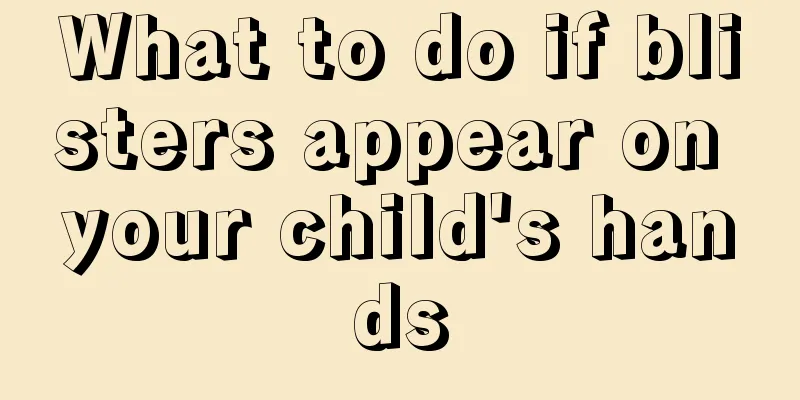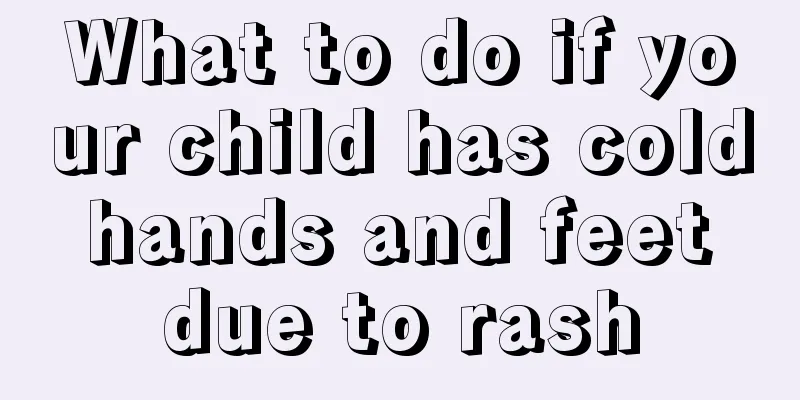What to do if your child has geographic tongue

|
We all know that first of all we need to know what causes geographic tongue? Geographic tongue is usually seen in cases of digestive dysfunction or when the baby has been ill for a long time, causing damage to both the Qi and Yin in the body. Babies with geographic tongue are often picky eaters, have a partial diet, love cold drinks, have unstable sleep, kick off the quilt, and toss and turn when they sleep. Smaller babies are prone to crying, hot flashes and sweating, have a sallow and dull complexion, are weak and thin, are afraid of cold, have hot palms, etc. What should babies with geographic tongue pay attention to in their diet? Children with geographic tongue should not eat fried, smoked, or greasy foods, such as oil cakes, fried eggs, pancakes, and grilled lamb skewers; spicy foods, such as chili, mustard, pepper, dried ginger, lamb, dog meat, and other fatty meats should also be avoided. Eat more fresh fruits and fresh, dark green or red vegetables, and be careful to avoid fried, smoked, grilled, greasy and spicy foods. You can use appropriate amounts of longan meat, yam, white lentils, red dates, coix seed and millet to cook porridge for your baby. The effect will be better if it is consumed together with animal liver. If the baby has a pale complexion, a bad temper, sweats a lot, and has dry stools, it is mostly due to damage to both the Qi and Yin. You can use appropriate amounts of lily, lotus seeds, wolfberries, and raw astragalus to make soup and drink it, which will improve the geographic tongue. What are the common symptoms of “geographic tongue”? Symptom 1: "Congenital", the child has a normal appetite, which often does not require special treatment. Symptom 2: “Non-congenital”, the child shows symptoms such as listlessness, loss of appetite, and thinning and yellowing hair. Does “geographic tongue” mean that the baby is malnourished? Geographic tongue, also known as migratory glossitis or exfoliative glossitis, is a chronic inflammation of the superficial layer of the tongue, mostly characterized by localized atrophy and hyperplasia of the filiform papillae on the dorsum of the tongue. It is generally more common in preschool children and is a common oral disease. "Geographic tongue" mainly appears on the back of the tongue, and sometimes may also appear on the edge, belly, tip, etc. of the tongue. It forms circular or oval areas of red flaking with clear boundaries, much like a map. The shape and position of geographic tongue will constantly change, but apart from its unsightly appearance, the child will not necessarily experience any special feelings or health problems as a result. The specific cause of 'geographic tongue' is not yet clear, but research and observations have shown that it is likely related to insufficient or unbalanced nutrient absorption in the human body, so parents should teach their children not to be too picky about food. In addition, people with indigestion, intestinal parasites, and vitamin B deficiency are also more likely to suffer from geographic tongue. Factors such as menstrual cycle effects, anemia, gastrointestinal dysfunction, mental and emotional instability, and excessive fatigue are also considered to be some of the causes of "geographic tongue" in adults. Does geographic tongue have a big impact on baby’s health? Experts say that treating infections from odontogenic and non-odontogenic pathogens, maintaining oral hygiene, and using antibiotics as prescribed by a doctor when a combined infection has occurred can all effectively prevent and treat "geographic tongue." Actively regulating emotions in daily life, paying attention to food hygiene and nutritional balance, and avoiding foods that are prone to allergies if you are sensitive, can help prevent the occurrence of "geographic tongue" and other types of oral diseases. There is no need to worry too much if your child has geographic tongue. It will not worsen and is harmless to the human body. It generally does not require special medication. As long as there are no special subjective symptoms or uncomfortable feelings, you can wait for it to disappear naturally. Some children with "geographic tongue" will experience pain, mild numbness, and other discomfort when eating irritating foods. At this time, applying ointment or using mouthwash can effectively alleviate the symptoms and promote early recovery. |
<<: What to do if your child is unsteady on his/her feet
>>: What to do if your 15-month-old baby walks unsteadily
Recommend
How to treat children's dysphoria
Children's genitals are a very common childho...
Is it necessary to test trace elements in children?
The biggest worry for every parent is the health ...
Primary school sixth grade schedule
Primary school students are relatively young and ...
What is the development standard of a four-month-old girl?
What every parent is most worried about is the ba...
What's a good breakfast for kids? 7 Foods Rich in Nutrients
Children's health has always been the top con...
20-month-old baby recipes
When the baby is 20 months old, the diet must be ...
Why does a one-month-old baby’s legs shake?
Generally speaking, a baby's physical fitness...
Does noise affect babies?
When a new life is born, it brings joy to the fam...
What to do if your child coughs before going to bed
It is inevitable for children to catch colds, get...
What is the reason for children’s thick white tongue coating?
In daily life, every move of the baby will concer...
Can enteritis cause fever in babies?
When a child develops enteritis, it is often rela...
What to do if there are white spots on the child's fingertips
The doctor said that the reason why children have...
What should I pay attention to when my child has blocked tear ducts?
It is normal for children to have blocked tear du...
What should I do if my baby always has a red butt?
Some mothers find that their babies always have r...
Is yogurt good for babies?
Nowadays, every baby is spoiled by his parents, a...









